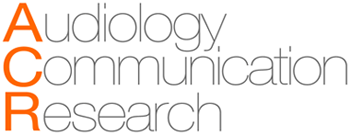ABSTRACT
Purpose
To evaluate the effectiveness of two therapeutic approaches in reducing vocal symptoms in patients with behavioral dysphonia.
Methods
This was an explanatory, quantitative and interventional study. A total of 99 patients of both sexes with behavioral dysphonia who sought speech therapy participated in this study. These patients were allocated into two groups: individual therapy (IT) and group therapy (GT). All participants were subjected to therapy with an eclectic approach. Eight sessions were conducted, comprising a first and a last session for evaluation, with six intervention sessions in between them. A descriptive and inferential statistical analysis was performed to compare the groups and the moments before and after the intervention.
Results
The majority of participants were female, and there was a predominance of patients who did not use their voice professionally and who had a diagnosis of a laryngeal lesion in the membranous portion of the vocal fold. It should be noted that patients presented similar mean scores at the beginning of therapy regardless of the group to which they were allocated, which indicated the homogeneity of the groups. There were reductions in all Vocal Symptoms Scale (VoiSS) scores after individual and group therapy. No significant differences were observed when comparing the mean posttherapy VoiSS scores between the groups in either domain. Some VoiSS items were unable to detect differences between the pre- and posttherapy timepoints.
Conclusion
Individual and group therapeutic modalities are effective in significantly reducing self-reported vocal symptoms. The type of intervention influences the reduction in vocal symptoms. Some items of the VoiSS, mainly in the area of limitations, were more sensitive at the posttherapy timepoint in both modalities.
Keywords:
Dysphonia; Speech therapy; Group practice; Protocols; Signs and symptoms; Voice

 Thumbnail
Thumbnail
 Thumbnail
Thumbnail
 Subtitle: n = number of individuals
Subtitle: n = number of individuals
 Subtitle: n = number of individuals
Subtitle: n = number of individuals